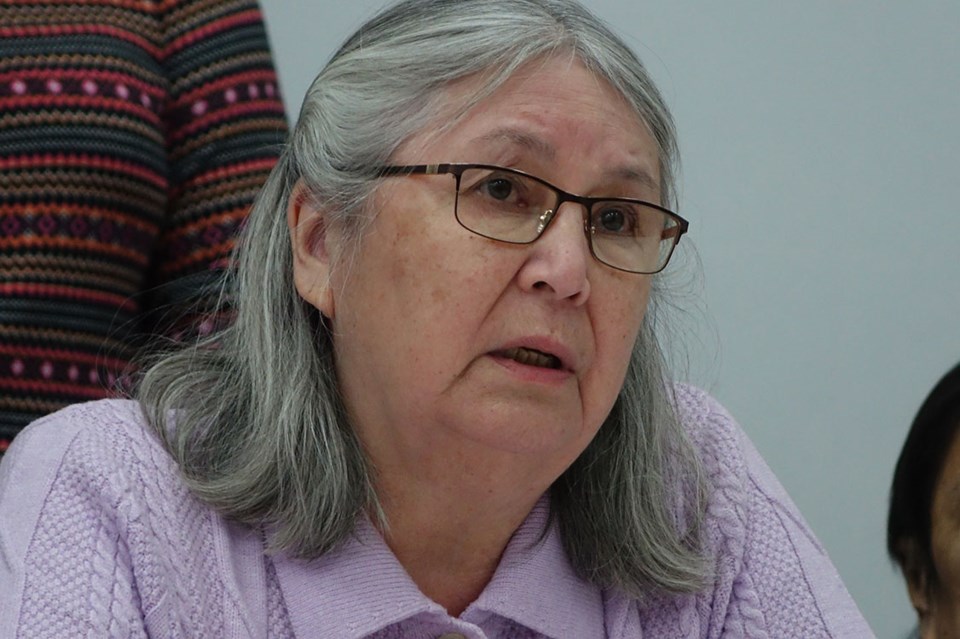A Northern Manitoba First Nation where one woman was killed and another woman died of exposure after being stuck on a snowmobile trail for 12 hours has declared a state of emergency.
O-Pipon-Na-Piwin Cree Nation Chief Shirley Ducharme made the declaration March 6 and is calling on the provincial and federal governments to assist the community of South Indian Lake, located northwest of Thompson, whose once-bustling commercial fishery has been badly impacted by waterways being diverted for electricity generation.
“We are declaring a state of emergency following a string of deaths in our community,” Dycharme said in a news release. “The root causes of our emergency come from centuries of colonial impacts resulting in addictions, reactions to trauma and mental health issues. We are requesting to the federal and provincial governments for immediate assistance with supports to address the immediate issue.”
The community’s pair of recent tragedies began Feb. 19 when South Indian Lake RCMP officers were called to the nursing station after 47-year-old Noreen Tait was brought there with severe injuries from an assault. She was medevaced to Winnipeg where she died two days later. On March 1, a 28-year-old woman was brought to the nursing station and died. She had been travelling to a cabin about 16 kilometres from South Indian Lake when the snowmobile she and a male companion were riding on broke down. She remained with the snowmobile while the man walked back to the community. He returned with another man nearly 12 hours later and they travelled back to the community, where she became unresponsive and later died.
“We are dealing with emergencies and tragedy on a daily basis here it seems,” said Ducharme. “Our people are dying and as leadership, we have to do something. Today, I am calling for help to get crisis supports to help our community.”
At a recent press conference in Thompson, Noreen Tait’s sister Arla Tait-LInklater said that tragedies in small communities like South Indian Lake affect everyone and can result in further crises as people turn to drugs and alcohol in an attempt to numb their pain. At that same press conference, Manitoba Keewatinowi Okimakanak vice-chief and Pimicikamak Cree Nation Chief David Monias said mental health services in First Nations are often limited to visits by mental health therapists every two weeks, which is far from sufficient.
Ducharme said at that press conference that many of the mental health and addictions issues OPCN members deal with are the result of past traumas, like the ‘60s Scoop and the intergenerational effects of residential schools, as well as projects like the Churchill River Diversion.
Constructed in the early to mid-1970s to redirect water from the Churchill River system into the Nelson River system in order to power the Crown corporation’s hydroelectric dams that provide more than 70 per cent of Manitoba’s electricity, the Churchill River Diversion had a massively detrimental impact on the Southern Indian Lake whitefish fishery that used to be the community’s economic engine, residents say.
“You don’t know the impacts that the Churchill River Diversion has done to our community,” said Ducharme on Feb. 27.
Organizations representing First Nations are supporting OPCN, both through direct aid and by advocating for action from other levels of government.
The Assembly of Manitoba Chiefs is facilitating a process for OPCN to design, develop and implement a community action plan addressing immediate, short-term and long-term community needs.
“AMC stands with Chief Shirley Ducharme and O-Pipon-Na-Piwin Cree Nation as they declare a state of emergency over the numerous deaths in their First Nation within a short period of time,” said AMC Grand Chief Cathy Merrick.
MKO, which advocates on behalf of OPCN and more than 20 other Northern Manitoba First Nations, has deployed its mobile crisis response team to the community to assist families dealing with trauma.
“We are also going to assist our member First Nation with their call for more housing by advocating on their behalf federally and asking the province to limit the hours of their ferry to control the flow of alcohol into their community,” said MKO Grand Chief Garrison Settee.




